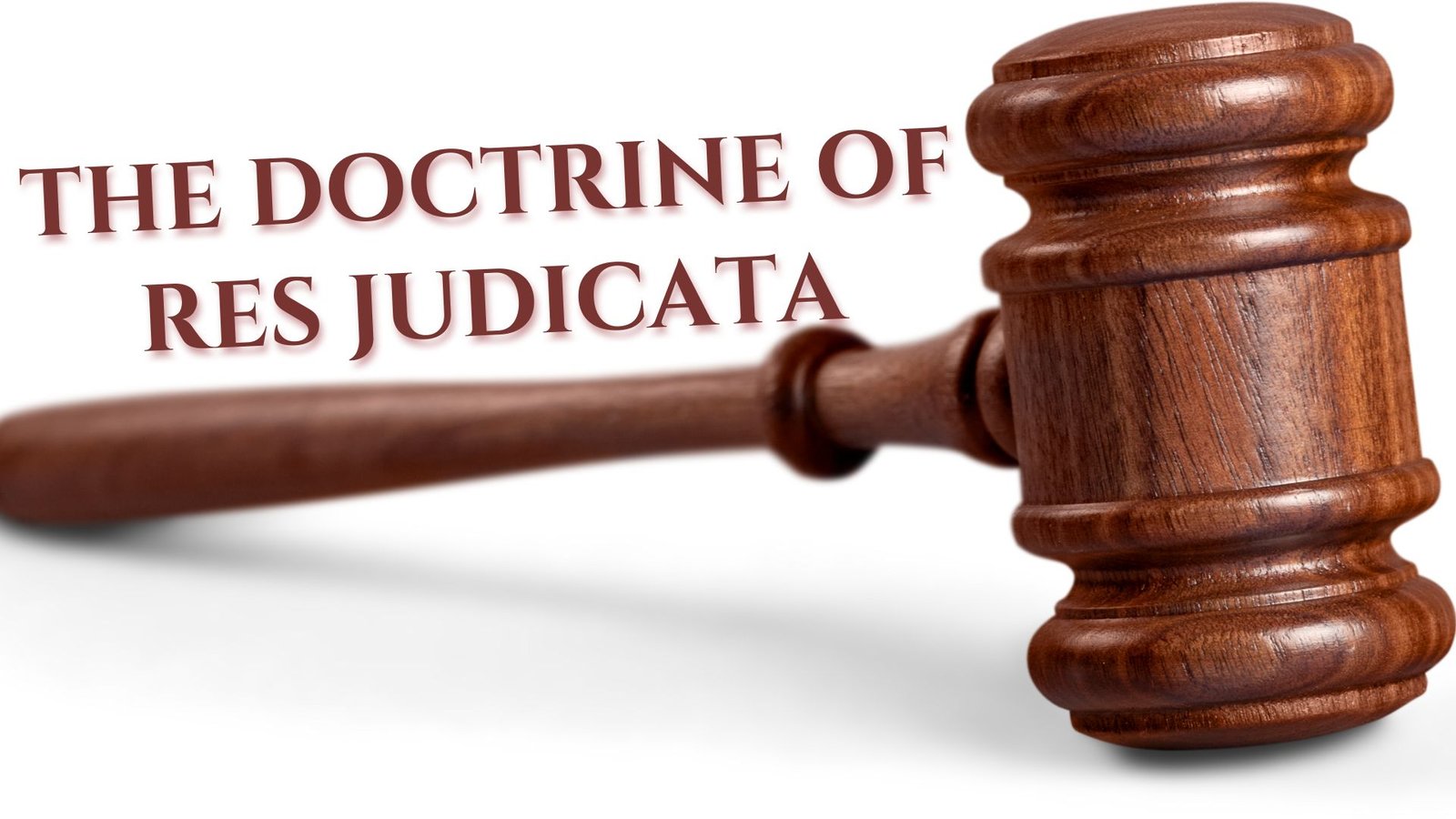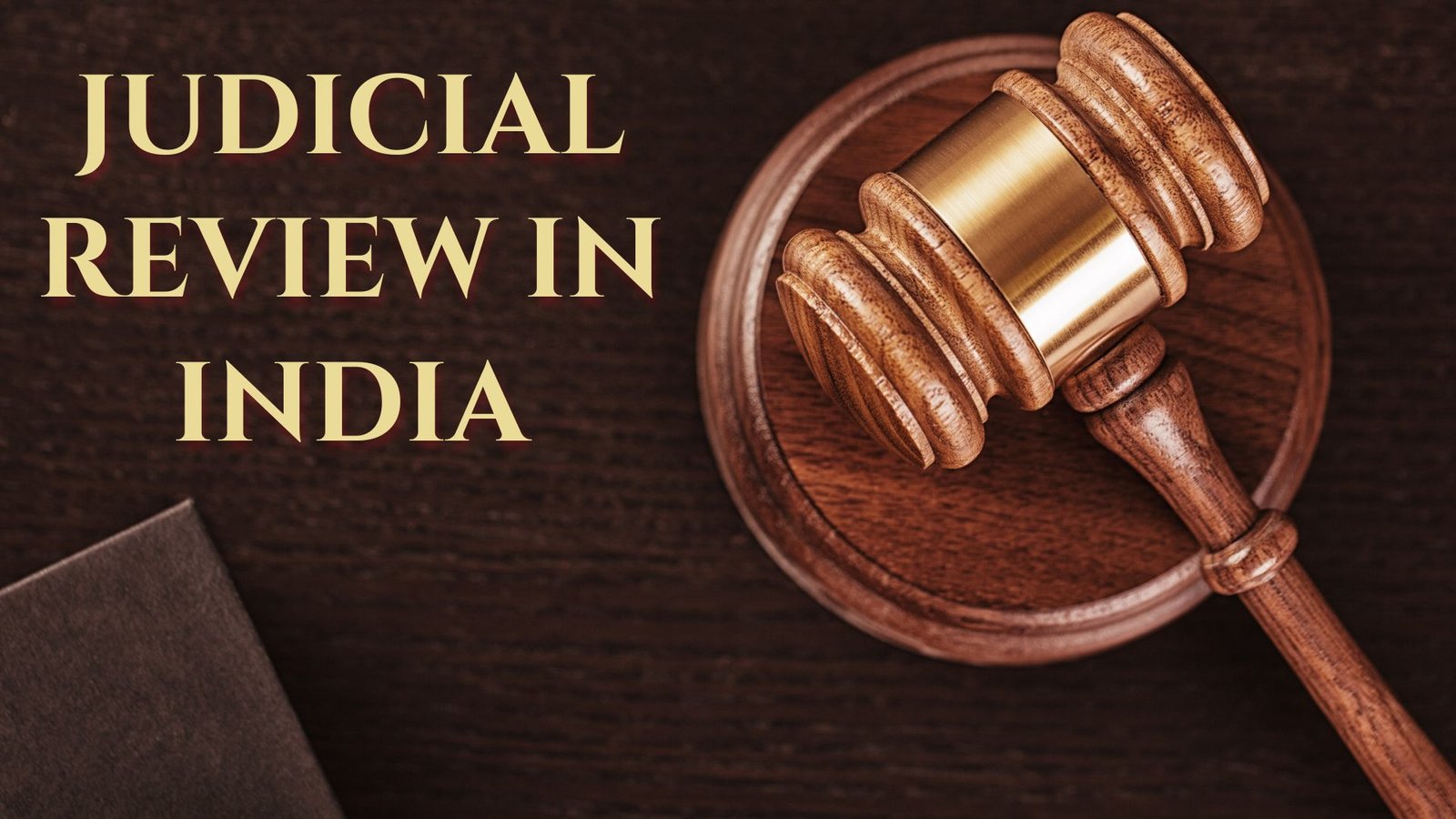On this page you will read detailed information about Doctrine of Res Judicata.
As an attorney or knowledgeable layperson, you understand that the doctrine of res judicata—translated as “a matter judged”—is a core legal principle that promotes fairness and judicial economy. When a court has made a final judgment on the merits of a case, binding the parties involved, the doctrine prohibits subsequent actions that relitigate the same claim or issue. By preventing redundant cases that undermine confidence in the legal system, res judicata conserves limited judicial resources. In this article, you will explore the complexities of this doctrine and why it remains fundamental to the American justice system’s pursuit of timely, consistent, and just resolutions to legal disputes. With a nuanced grasp of this legal cornerstone, you can better advise clients or make informed arguments regarding the preclusive effects of prior judgments.
What Is the Doctrine of Res Judicata?
The doctrine of res judicata is a legal principle that prevents parties from relitigating issues that have already been decided in a valid and final judgment. Once a court has reached a final decision in a case, res judicata bars the same parties from bringing another lawsuit on the same claim or cause of action. This doctrine aims to promote fairness, efficiency, and finality in the legal system.
Res judicata encompasses two related concepts:
- Claim preclusion: Prevents parties from litigating a claim that has already been decided in a valid and final judgment. It bars subsequent actions on the same claim between the same parties.
- Issue preclusion: Prevents parties from relitigating an issue that has already been decided in a valid and final judgment. It bars subsequent actions that depend on issues already judicially determined.
For res judicata to apply, several requirements must be met:
- The prior decision must be a final judgment on the merits. A judgment on procedural grounds is not enough.
- The prior and current actions must involve the same parties or parties in privity. Privity refers to a legal relationship between parties, like a trustee and beneficiary.
- The subsequent claim must be the same as the claim brought in the prior action. If the claim in the new lawsuit is separate and distinct, res judicata does not apply.
- The prior court must have had proper jurisdiction to adjudicate the claim. If the court lacked jurisdiction, its judgment has no preclusive effect.
- The parties must have had a full and fair opportunity to litigate the claim in the prior action. If new evidence has come to light, res judicata may not apply.
When correctly applied, the doctrine of res judicata promotes stability and finality in litigation. It spares parties and the courts from rehashing claims and issues that were already decided. However, it must be balanced with the need to achieve just outcomes, especially when new evidence surfaces. Overall, res judicata aims for fairness, efficiency, and finality in dispute resolution.
In the previous post, we had shared information about The Importance of Unity in Diversity in India, so read that post also.
The Three Elements of Res Judicata
To establish res judicata, three elements must be present:
Final Judgment
There must be a final judgment on the merits in the first action. A judgment on the merits occurs when the court rules on the substantive issues in a case, rather than on procedural grounds. The judgment must also be final, meaning all appeals have been exhausted or the time for appeal has expired.
Same Parties
The parties in the second action must be the same as, or in privity with, the parties in the first action. Privity refers to a close, mutual, or successive relationship, such as a legal representative or successor in interest. If new parties are added or the parties’ interests have changed, res judicata may not apply.
Same Cause of Action
The claim in the second action must be based on the same cause of action, or the same essential facts and circumstances, as in the first action. The same transaction or series of transactions must be at issue in both suits. If the second claim introduces new facts or requests different relief, it is likely a distinct cause of action and res judicata will not prevent the second claim.
Res judicata aims to balance fairness to litigants with efficiency and finality in the judicial system. By requiring these three elements, it ensures that parties receive a full and fair opportunity to litigate their claims while preventing needless re-litigation of issues. Understanding the doctrine of res judicata and determining whether it applies in a particular case requires carefully analyzing the relationship between the parties, claims, and judgments in the initial and subsequent legal proceedings.
Purpose and Rationale Behind the Doctrine
The doctrine of res judicata serves several important purposes in the legal system. First, it promotes finality of judgments, allowing parties to rely on decisions in legal disputes. Once a final judgment has been entered, the parties can expect that the matter is concluded and will not be re-litigated.
Second, res judicata conserves judicial resources. It avoids wasting the time and resources of the courts on matters that have already been decided. Judges and courts have busy dockets, and relitigating matters that have already been conclusively determined diverts resources away from new issues.
Third, the doctrine protects parties from harassment through repetitive litigation. Without res judicata, a plaintiff could subject a defendant to continual lawsuits on the same claim or cause of action. The doctrine prevents such vexatious litigation by prohibiting re-litigation of matters that have already been adjudicated.
Finally, res judicata ensures consistency of results. Once a matter has been conclusively decided, the judgment of the court should not be disturbed. Allowing the same matter to be re-litigated risks inconsistent verdicts and judgments on the same facts or events. The doctrine promotes stability in the law by ensuring that judicial decisions are final and conclusive.
In sum, the doctrine of res judicata plays an integral role in the legal system by promoting finality, efficiency, consistency, and fairness. It gives parties confidence in the conclusiveness of judgments, allows courts to allocate resources wisely, and prevents harassment through repetitive lawsuits. By prohibiting re-litigation of claims or issues that have already been decided, res judicata helps ensure stability and dependability in the administration of justice.
Key Cases Establishing Res Judicata
The doctrine of res judicata has been established through several landmark cases. Two of the most significant are:
Post v. Peyton (1958)
This U.S. Supreme Court case affirmed that when a court decides an issue of fact or law necessary to its judgment, that decision precludes relitigation of the same issue in a later lawsuit between the same parties. The Post case established res judicata as a constitutional rule.
Parklane Hosiery Co. v. Shore (1979)
This Supreme Court case held that res judicata prevents a party from relitigating an issue determined against that party in an earlier action, even if the second action affords the party procedural opportunities unavailable in the first action. This includes the right to a jury trial. The Court reasoned that the defendants had a full and fair opportunity to litigate their claims in the first action. Allowing them to relitigate the same issues would undermine the important values res judicata aims to promote, namely avoiding the expense and vexation attending multiple lawsuits, conserving judicial resources, and fostering reliance on judicial action by minimizing the possibility of inconsistent verdicts.
In summary, the Post and Parklane cases established res judicata as a constitutionally-mandated doctrine in U.S. law intended to promote judicial economy and protect litigants from the burden of relitigating the same issue. When a court has issued a final judgment on the merits in a case, res judicata prevents the parties from disputing that issue again in a subsequent proceeding. These seminal cases cemented res judicata as a keystone of the American legal system.
How Res Judicata Differs From Collateral Estoppel
The doctrine of res judicata should not be confused with the related principle of collateral estoppel. While res judicata refers broadly to the preclusive effect of final judgments, collateral estoppel refers more narrowly to the preclusive effect of factual determinations.
Res judicata prevents parties from relitigating the same claim, while collateral estoppel prevents parties from relitigating specific issues that have already been determined. In other words, res judicata applies to entire claims, whereas collateral estoppel applies to issues within a claim.
For res judicata to apply, there must be:
- A final judgment on the merits in the first action
- The same parties or their privies in both suits
- A claim or cause of action in the second suit that was or could have been raised in the first suit
Collateral estoppel requires:
- An issue of fact or law
- Actually litigated and determined by a valid final judgment
- Essential to the judgment
If these requirements are met, collateral estoppel may preclude relitigation of that issue in a subsequent suit involving the same party or its privy, even if the second suit is based on a different claim.
In summary, res judicata bars the whole claim precluding all issues, whether previously litigated or not. Collateral estoppel, on the other hand, only precludes issues that have actually been litigated and determined in the prior suit. Both doctrines promote finality, prevent inconsistent judgments, and reduce the cost and vexation of multiple lawsuits. Understanding the differences between these two preclusion doctrines is crucial for any practicing attorney.
Exceptions to the Res Judicata Doctrine
While res judicata is a fundamental legal principle, there are certain exceptions to its application.
Fraud
If a court finds that a judgment was obtained by fraud, the doctrine of res judicata will not apply. The aggrieved party can file a motion to vacate the judgment on the grounds of fraud. Once vacated, the parties are restored to their original positions and the case can be re-litigated.
Lack of jurisdiction
Judgments issued by courts that lack proper jurisdiction over the subject matter or parties are not binding. The parties are not precluded from re-litigating the same issues in a court of competent jurisdiction.
Change in law
When there has been an intervening change in the applicable law between the time of the initial judgment and a subsequent proceeding, res judicata will not apply. The same issues may be re-litigated under the new law.
New evidence
If new and substantial evidence surfaces after a final judgment is issued, res judicata will not prevent re-litigation of the issues. However, the new evidence must be material to the outcome and not merely cumulative. The party seeking to re-open the litigation bears the burden of proving that the new evidence would likely change the result.
Public policy
In rare cases, res judicata may not apply when public policy demands that issues be re-examined. This is an extremely narrow exception and is determined on a case-by-case basis. There must be a compelling reason to override the doctrine of res judicata in the interest of justice.
In summary, while res judicata promotes judicial economy and finality, it is not an absolute bar to re-litigation. These exceptions allow courts flexibility to vacate or modify judgments when justice so requires. However, they are narrowly applied to balance fairness and efficiency.
Ways to Challenge a Res Judicata Ruling
If you believe a res judicata ruling in a prior case was made in error, there are a few avenues you may pursue to challenge it. However, overturning a res judicata decision is difficult, as courts generally favor finality of judgments.
Motion to Reconsider
You may file a motion asking the court that issued the original ruling to reconsider its decision. This must be done promptly, typically within a few weeks of the judgment. You will need to demonstrate that the court overlooked or misapprehended some material fact or law, or that there has been a change in law since the ruling that affects the outcome. The court has discretion over whether to grant a motion to reconsider.
Appeal
Appealing the original decision to a higher court is the most common path for challenging res judicata. On appeal, you can argue that the lower court misapplied the law or abused its discretion in determining that your claims were precluded. The appellate court can review the lower court’s decision de novo. However, your window for filing an appeal is limited, usually 30 days from the judgment.
Collateral Attack
If the normal appeal period has expired, you may file a separate lawsuit alleging that the original judgment was obtained by fraud or collusion, or that the court lacked jurisdiction. This is known as a “collateral attack.” The new court can declare the original judgment void, allowing your claims to proceed. However, collateral attacks face significant hurdles and should only be used as a last resort.
Request to Overrule Precedent
As a last option, you can petition the highest court in your jurisdiction to overrule the precedent that is precluding your claims under res judicata. For example, you can request that the state supreme court overrule an appellate court decision. Overruling precedent is rare, but can be justified if the law has evolved or if the prior ruling was clearly erroneous. You will need to demonstrate how overruling the decision would promote justice and the public good.
In summary, while challenging a res judicata ruling is difficult, it is not impossible. With diligent effort and sound legal arguments, you may be able to persuade a court to reconsider or overturn a decision that precludes the litigation of your claims. However, timing is key – you must act promptly within the allowed time periods for various review procedures.
The Future of the Res Judicata Doctrine
The legal doctrine of res judicata, meaning “a matter [already] judged”, has been a cornerstone of civil litigation and the legal system as a whole for centuries. However, some legal experts argue that strict application of res judicata in modern times can lead to unjust results, especially in a world where technology and societal values are rapidly evolving.
There are a few ways res judicata may develop in the coming decades. One possibility is that courts will carve out more exceptions to the doctrine, allowing for re-litigation of issues even after a final judgment has been entered. For example, some scholars propose an “evolution of moral standards” exception, permitting re-litigation when there has been a substantial change in moral views that underpinned the original decision.
Another possibility is that res judicata will be weakened or limited in certain types of cases, such as those involving constitutional rights or new technologies. For instance, there is an argument that res judicata should not bar re-litigation of issues related to artificial intelligence systems, since the law surrounding AI is still developing and prior judgments may quickly become outdated.
However, others argue that res judicata must remain robust to preserve stability and finality in the legal system. If judgments were too easily re-opened, it could undermine confidence in the courts and flood the system with re-litigation of the same issues. Proponents argue that our system already has adequate safeguards, such as appeals processes and legislative changes, to address unjust or outdated rulings without sacrificing the benefits of res judicata.
In the end, the future of this seminal legal doctrine will depend on balancing these competing interests: achieving justice in individual cases versus maintaining stability in the system as a whole. The coming years will reveal whether the scales tip more toward a flexible and evolving application of res judicata or preserving its traditional role in binding parties to a final judgment.
Res Judicata Doctrine FAQs
Res judicata is a legal doctrine that prohibits relitigating issues that have already been decided in a valid, final judgment. In other words, once a court has entered a final judgment on the merits of a case, the parties to the suit and their privies are thereafter bound by that judgment and may not relitigate any of the issues that were decided in that judgment.
The doctrine of res judicata is fundamental to the rule of law. It provides finality and stability in legal affairs and protects litigants from the expense and annoyance of repetitive litigation. Res judicata conserves limited judicial resources and promotes confidence in judicial decisions by minimizing the possibility of inconsistent resolutions of disputes.
For res judicata to preclude a subsequent lawsuit, several factors must be present:
I) The prior judgment must be final and on the merits. A judgment that is subject to appeal is typically not considered final.
II) The prior judgment must be rendered by a court of competent jurisdiction.
III) The parties to both lawsuits must be the same or in privity with each other. Privity exists for parties with a legal relationship, like a successor in interest.
IV) The claims in both lawsuits must be the same or arise from the same transaction or series of transactions. The key is whether the same evidence will sustain both judgments.
V) The party against whom res judicata is asserted must have had a full and fair opportunity to litigate the issue in the first action. A lack of due process will prevent res judicata.
Res judicata does not apply to judgments that are:
I) Provisional, such as temporary restraining orders or preliminary injunctions.
II) Based on a lack of jurisdiction or venue.
III) The result of fraud or collusion.
IV) Subject to modification, such as child support orders.
V) For different causes of action, even if based on the same facts.
The doctrine of res judicata is a complex yet fundamental legal principle. Understanding its elements and applications is important for any student or practitioner of law.
Conclusion
At the heart of civil litigation lies the doctrine of res judicata: a foundational legal principle dictating that matters already adjudicated cannot be relitigated. By binding parties to resolved disputes, it promotes judicial economy, shields parties from endless litigation, and upholds the rule of law. As you proceed in your legal career, maintain a working knowledge of this doctrine’s key elements – same parties, same claims, valid final judgment – and recognize that while rigid in application, res judicata aims to balance fairness and efficiency in our civil justice system. Though complex cases will arise testing its boundaries, the doctrine endures as an essential component of an orderly, equitable judicial process.
Disclaimer
The information and services on this website are not intended to and shall not be used as legal advice. You should consult a Legal Professional for any legal or solicited advice. While we have good faith and our own independent research to every information listed on the website and do our best to ensure that the data provided is accurate. However, we do not guarantee the information provided is accurate and make no representation or warranty of any kind, express or implied, regarding the accuracy, adequacy, validity, reliability, availability, or completeness of any information on the Site. UNDER NO CIRCUMSTANCES SHALL WE HAVE ANY LIABILITY TO YOU FOR ANY LOSS OR DAMAGE OF ANY KIND INCURRED AS A RESULT OR RELIANCE ON ANY INFORMATION PROVIDED ON THE SITE. YOUR USE OF THE SITE AND YOUR RELIANCE ON ANY INFORMATION ON THE SITE IS SOLELY AT YOUR OWN RISK. Comments on this website are the sole responsibility of their writers so the accuracy, completeness, veracity, honesty, factuality and politeness of comments are not guaranteed.
So friends, today we talked about Doctrine of Res Judicata, hope you liked our post.
If you liked the information about Doctrine of Res Judicata, then definitely share this article with your friends.









